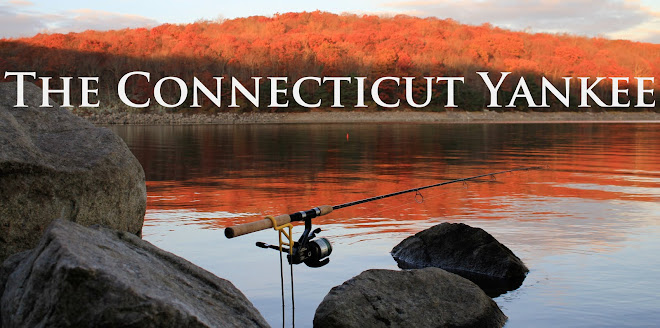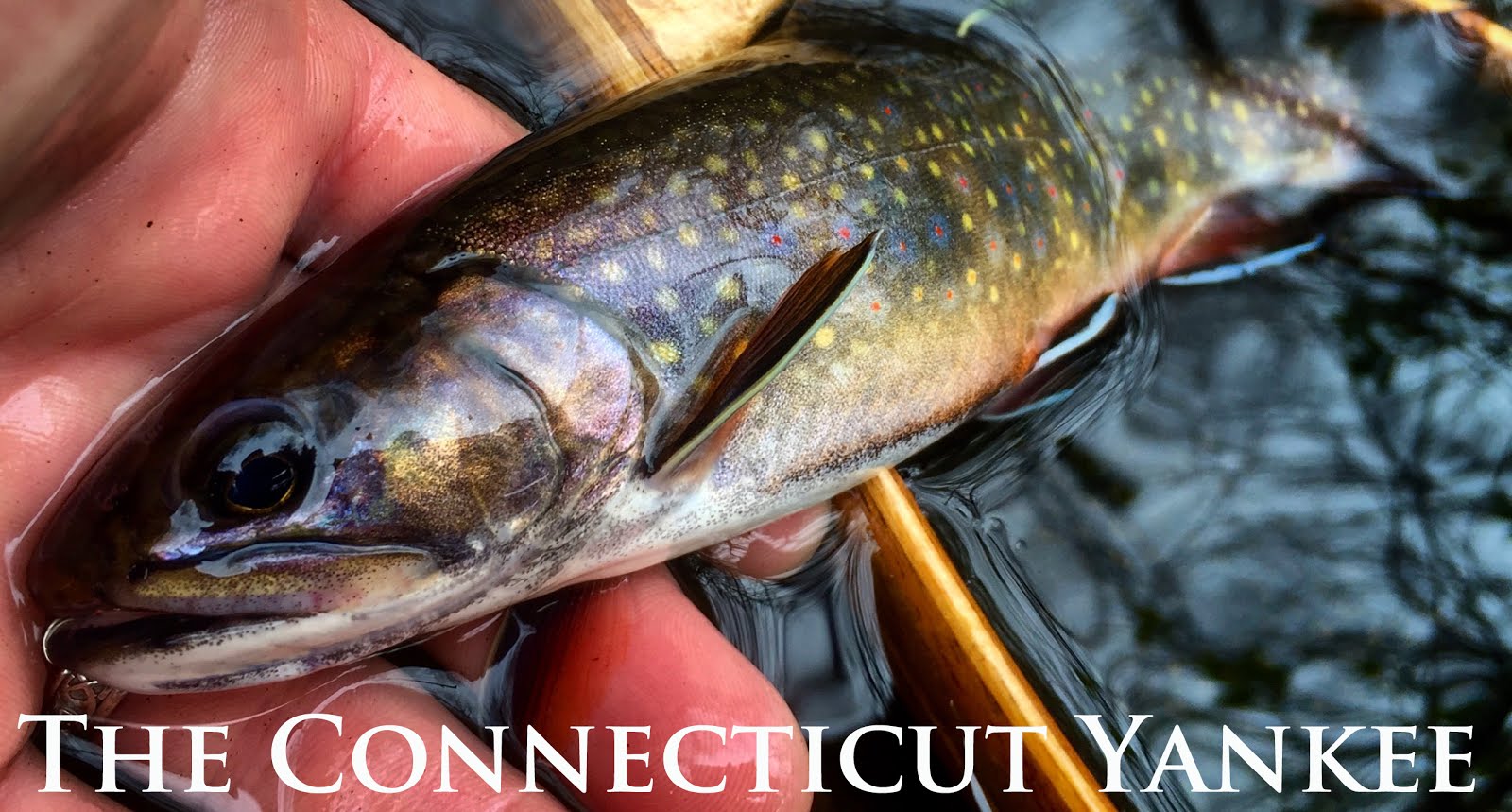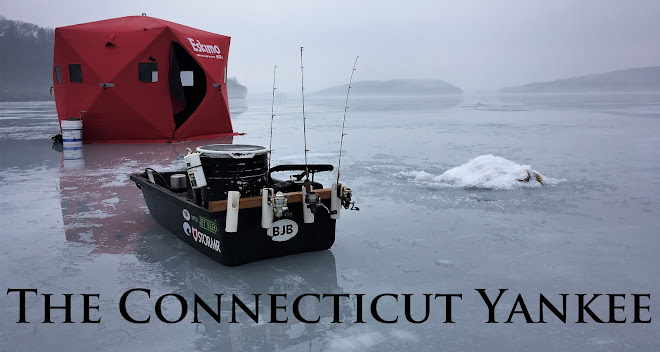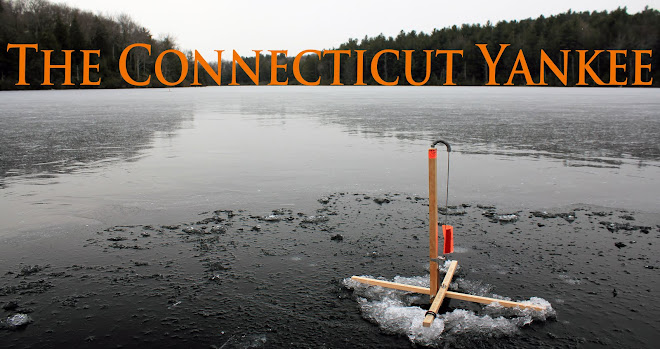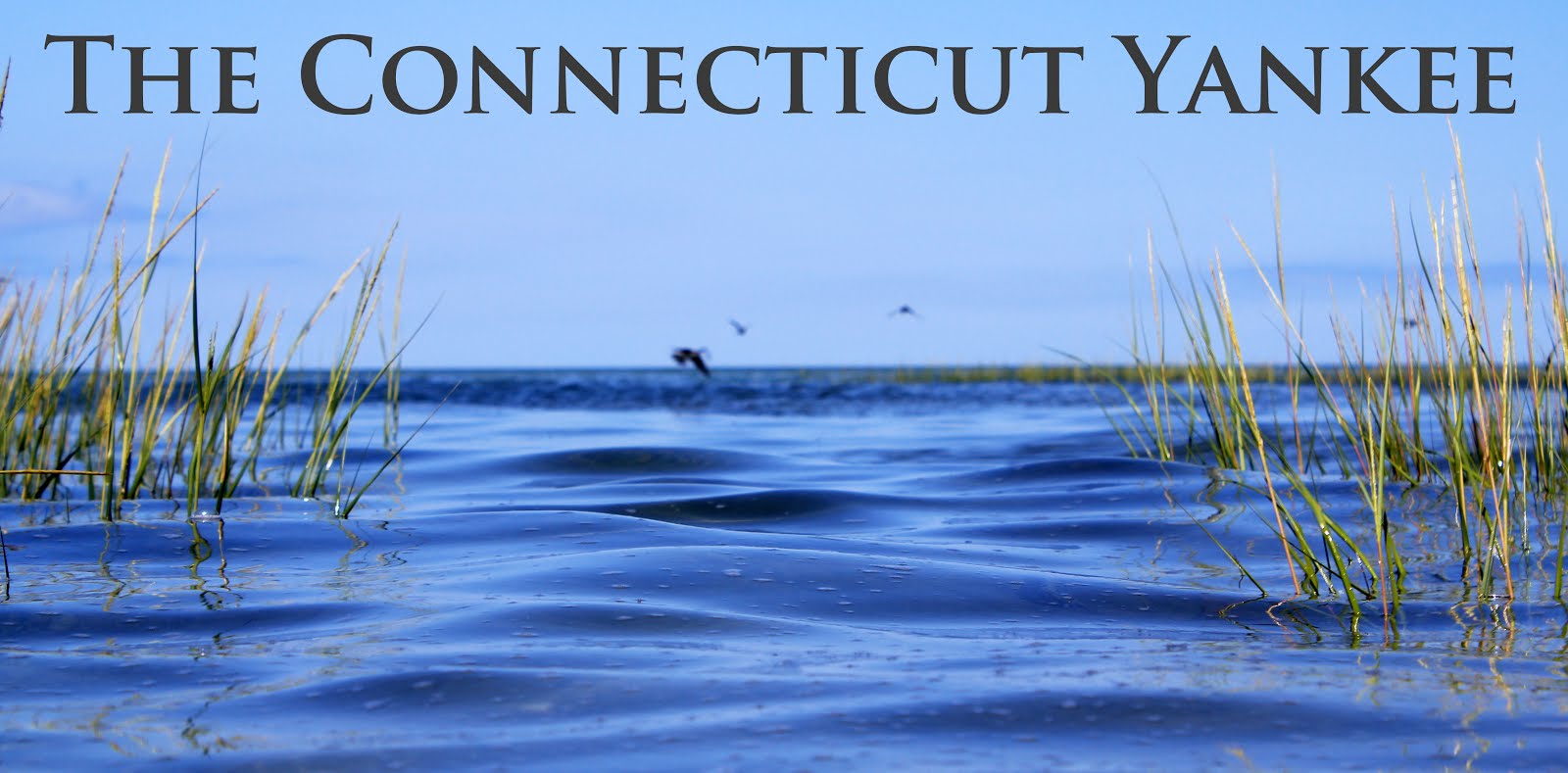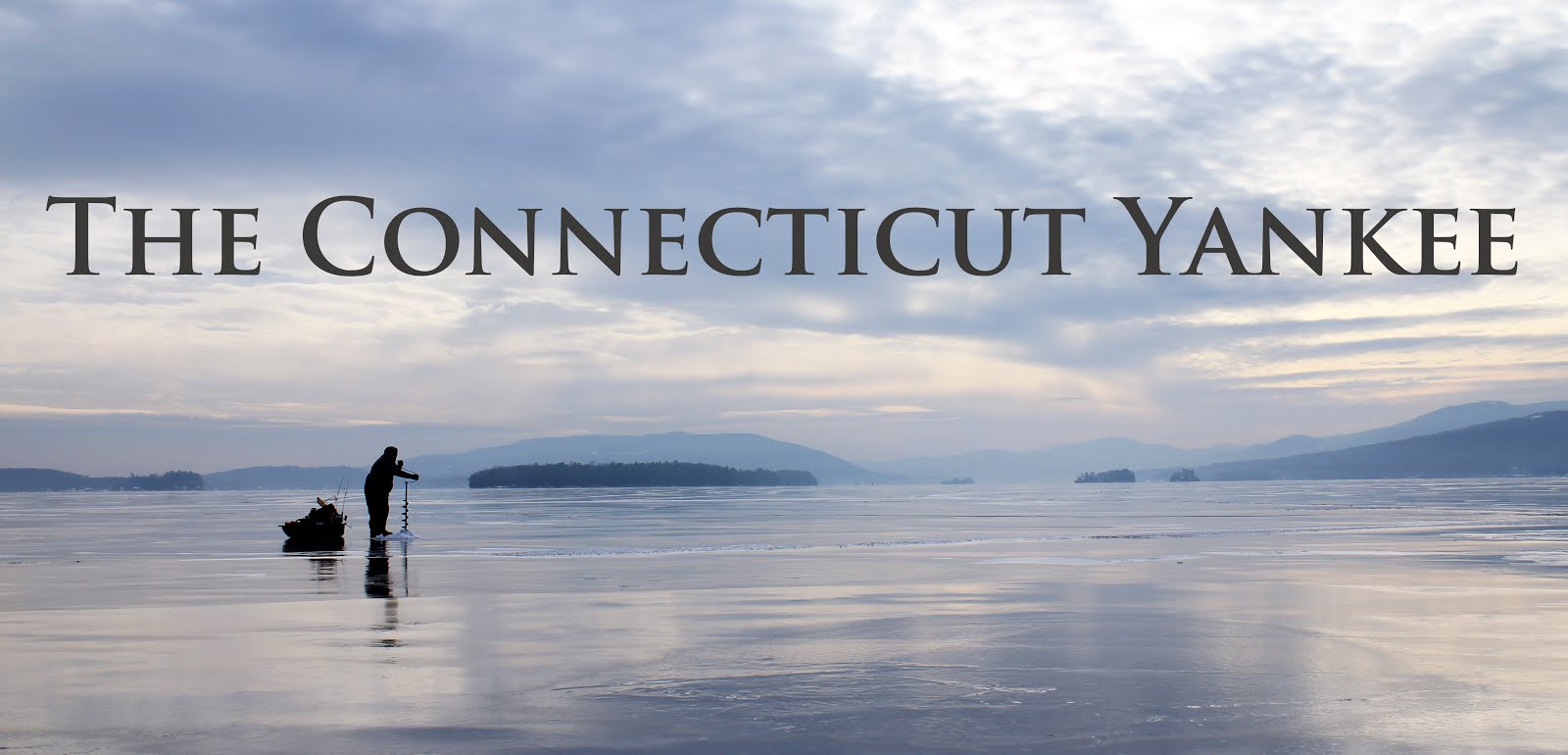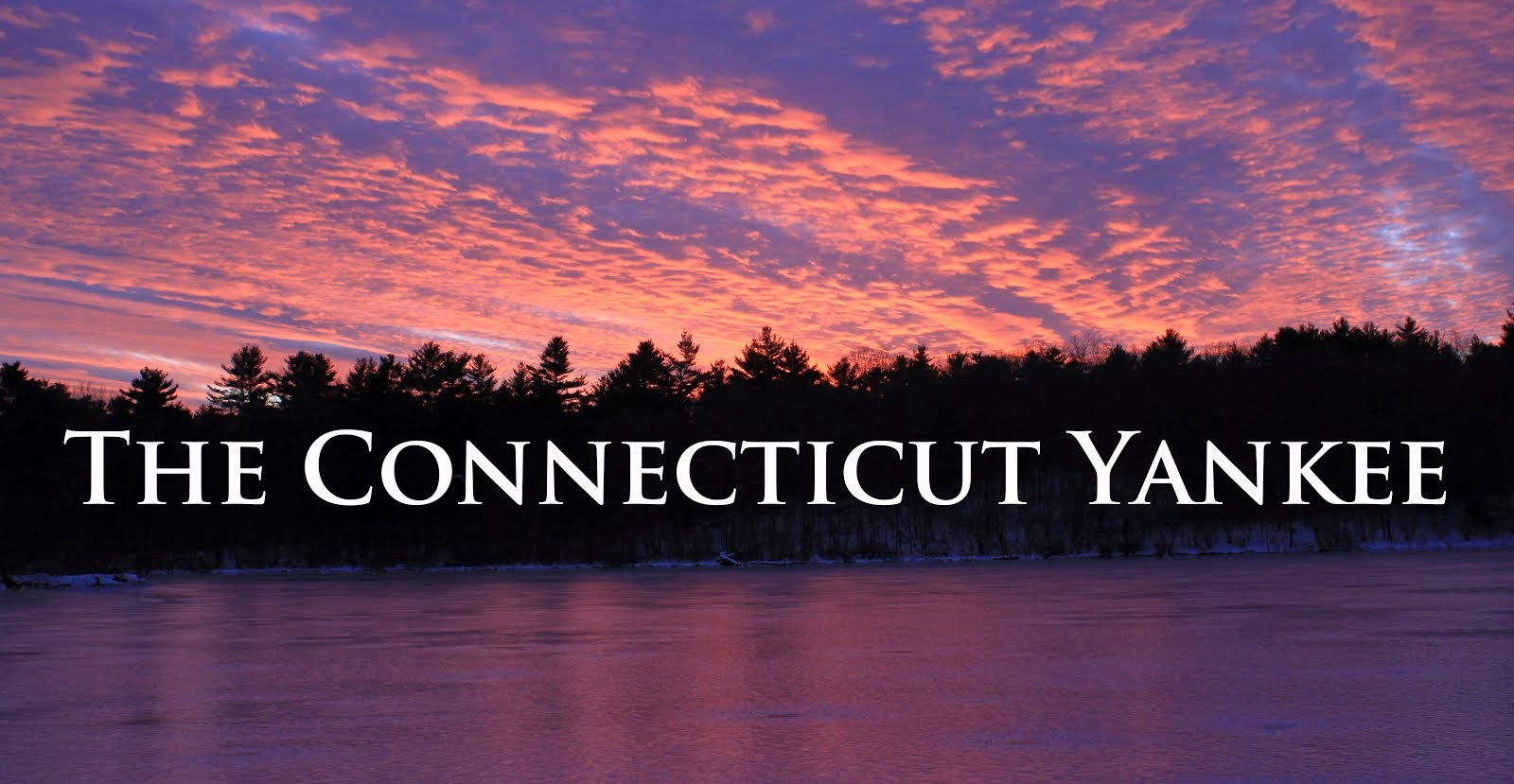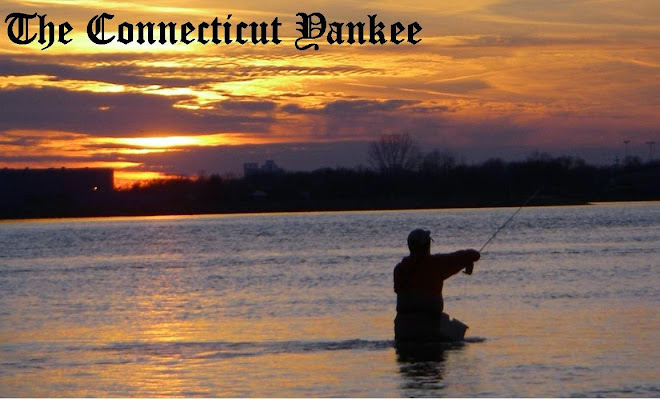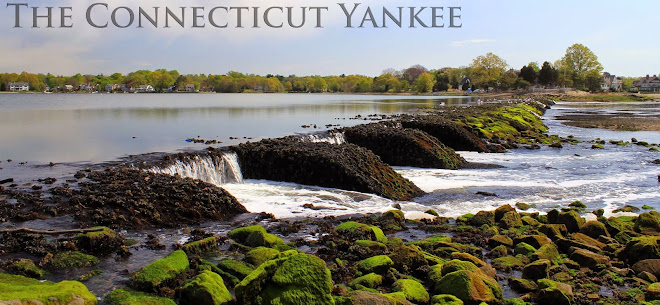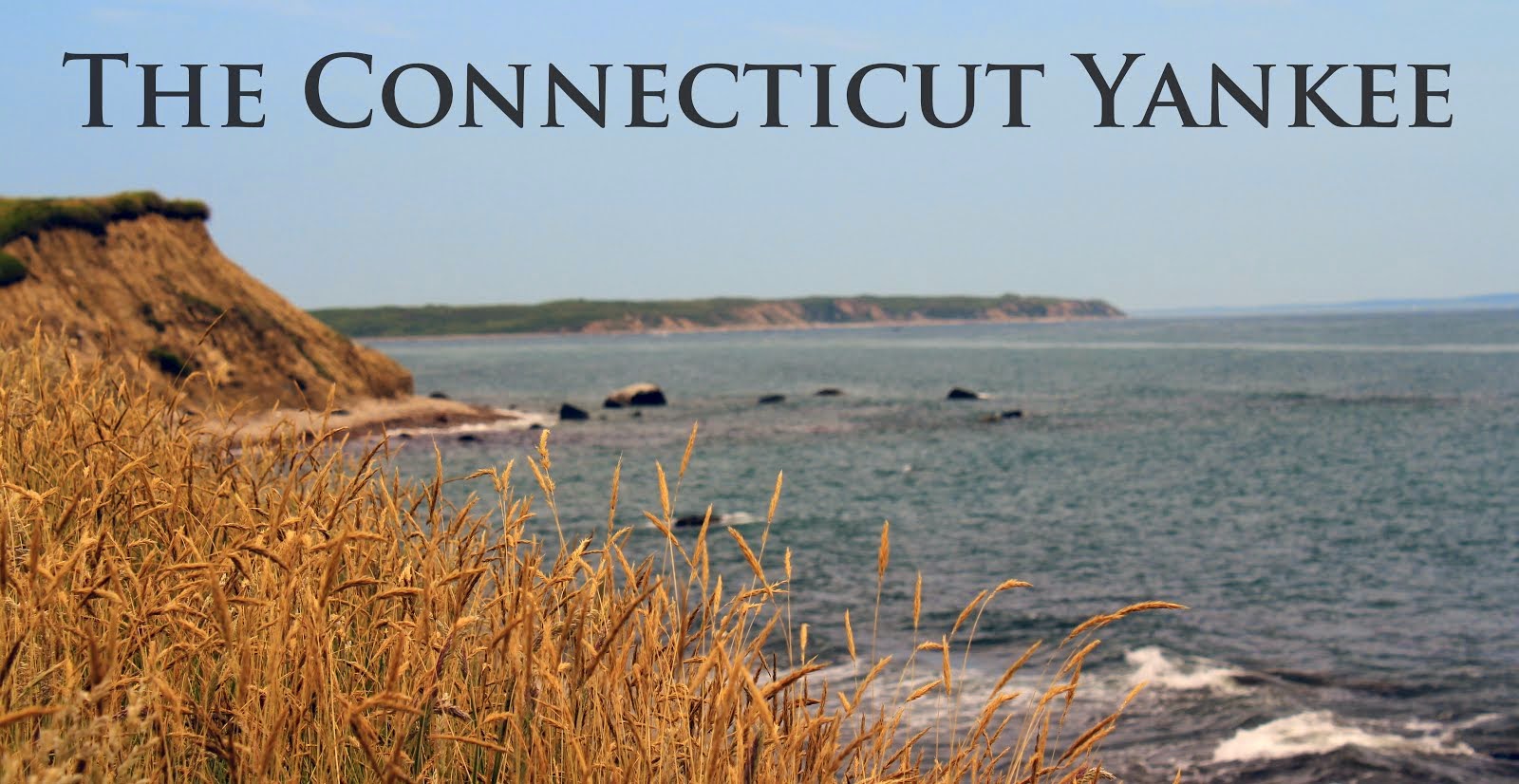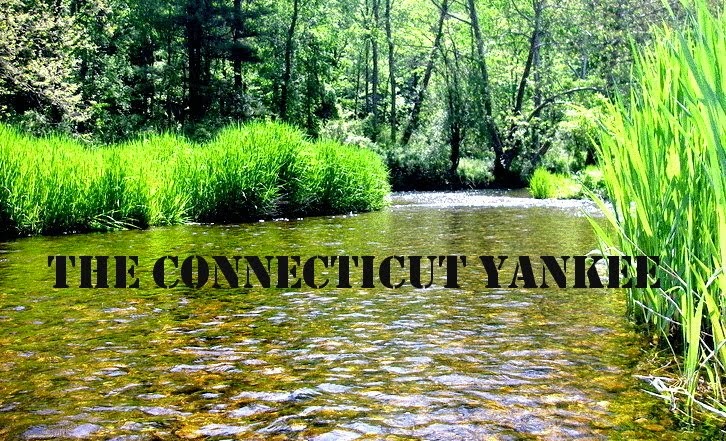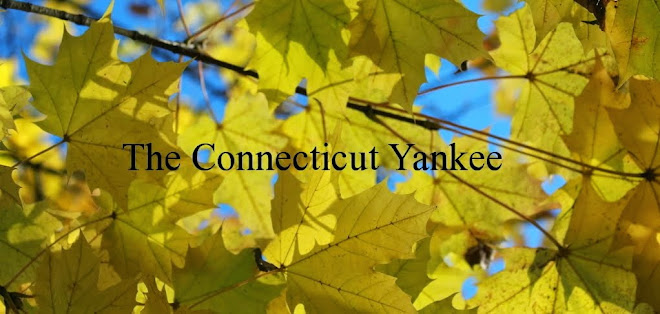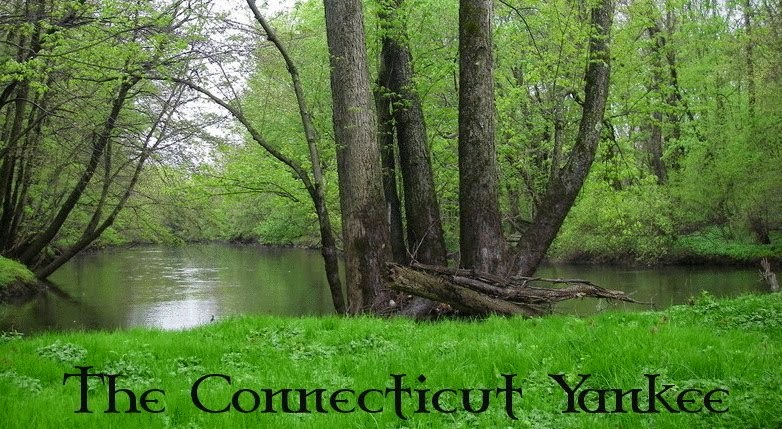Editor's note: Whether its fighting for hatcheries on the chopping block, historic homes facing demolition or precious natural spaces at risk of development, I'm all for taking a stand for what you believe in. That's why I'm happy to share the following piece form my friend Chad Wilde, who makes a heartfelt call-to-action to help protect a special blue line in Northeast Connecticut.
“According to Indian legend, brook trout were
not always the speckled beauties we know today.
“Once, long, long ago,” said old Jesse Logan, of the Cornplanter
Reservation in Warren County Pennsylvania, the last (in 1928) of the
Shikellemus tribe, “when Manitou visited the land of the Iroquois to lead His
lost children back to the Happy Hunting Ground in the Far East, He grew weak
with hunger and cold on his long quest.
Toward night He stopped beside a pool in the Seneca country [New York] which
was overshadowed by colossal white pines and hemlocks. Noticing that it was full of handsome trout,
as black as ebony, He reached in His hand and easily caught the largest of the
superb fish. Looking at it He was struck
by its beauty and agile grace, and decided to control His hunger and let it
live, so He dropped it back into the deep pool.
“The trout went its way, but
instantly its sides took on a silvery hue where the fingers of the Great Spirit
had held it, and all of its kind became marked with the same silvery sheen and
many colored spots and halos, as a token of their having been handled by the
kindly Manitou. For that reason, the
Seneca Indians and others of the Six Nations would not eat brook trout. Brook trout were sacred to the highest instincts
of their race. But what the redman
spared,” said Logan, “white men destroyed by the millions.”
~From Nick Karas' book Brook Trout
As an
angler, I have seen first hand what mans intrusion into our wild places can do to
fish. I have watched it with my own
eyes. Over the past 4 decades, if you
looked in the right places, these subtle but nefarious changes were impossible
to miss. Today, we must protect what
natural resources we still have. One
such resource in dire need of our stewardship is Roaring Brook in Willington
Connecticut.
I grew up on
a circle of tract housing laid into the side of Village Hill just upland from
Roaring Brook. I caught my first trout
in our backyard. It was a brook trout,
and I caught it out of a drainage pipe.
This was sometime in the early eighties when I was a child.
There was a
small stream that flowed into a culvert at the top of our road. The water ran through a storm drain under the
street to another culvert in front of my house where some of it spilled out. From there this trickle flowed behind our
home, through the woods, downhill and into Roaring Brook.
My brother
and I had been fishing with our father before.
I don’t recall how old we were but we were old enough to go out on rainy
nights and harvest night crawlers to fish with.
I remember walking and exploring the stream and coming to small pools
where the rocks were covered in green moss, in them we saw small fish dart
about. So quick, and then hidden. Gone.
We caught these
fish, on bits of worm, cast up into the drainage pipe from the mouth of the
small culvert. We didn’t know what they
were. Naturally, we put them in a bucket
with stream water. When our father got
home from work, he identified them as brook trout. As we grew, we followed the stream down
through the woods, it was a tributary of Roaring Brook. When we were old enough to do so we rode our
bikes to this slightly larger stream and spread our wings in exploration.
We would
swim in the deep pools and explore the stone foundation of Eldredge Mills, a
site recognized by the National Historical Register. To this day you can see the great stone circle
of its turbine pit, which I tell my children is a castle. I show them the stone walled sluiceway that
the early millers used to divert the water and power their saw and grist mills. Above these links to our colonial past rise
tall hemlock, oak and maple trees. Below
them flows Roaring Brook.
As a child
my friends and I would find crayfish and hellgrammites below stones in the brook. There were great mechanical looking stonefly
nymphs that would leave their molted husks on the streamside rocks. We found salamanders beneath moldering logs in
the forest, their skin slick and their tiny hands so delicate. There were brook and brown trout in the water.
Most people
don’t consider the link brook trout have to our heritage as New
Englanders. Brook trout are native to waters
throughout New England. This means that
their lineage developed indigenously in the water that drains our region. Their natural range encompassed a good
portion of the eastern United States, extending from Canada to high mountain
streams in northern Georgia and west to the Great Lakes basin.
This habitat
range has been drastically reduced by mans infringement. Brook trout require cold, clean, well oxygenated
water to survive. They require highly
specific pristine habitat conditions.
These native fish developed in the place that was right for them and
they were entrenched in these places long before European men set foot on North
American soil.
Like brook
trout, some people develop in the right place.
When it was time to buy a home with my wife and start a family I chose
to do so in the neighborhood where I grew up, in Willington. I was elated to do so. I envisioned my children exploring the same
watershed I did in my youth. I was back
on Roaring Brook, our home is less than a mile from its banks.
I consider
this my home water. Throughout my life,
I’ve always lived around Northeastern Connecticut. As an angler I have spent more time on
Roaring Brook than any other stream.
I’ve always caught fish, and many wild fish. I have walked and fished a good portion of
the brook from its mouth at the Willimantic River in Willington to its
headwaters in northwest Union.
Throughout its entire length it contains good trout habitat.
I know there
are no more brook trout in the small stream that flowed behind my parents
home. There is sand and water grown too
warm to support fish. Sediment and warm
water are lethal brook trout. Sediment
obscures their spawning gravel and chokes eggs.
Warm water carries less dissolved oxygen than cold water. Luckily, Roaring Brook is still suitable to
support wild fish.
Not truly
trout, brook trout are actually considered char. Trout and char are both members of the
Salmonidae genetic family, but only char are native to the Eastern seaboard of
North America. Char differ from trout in
appearance in that they have lighter colored spots against a dark colored body where
trout generally have darker spots against a light one.
Brook trout
are gorgeous fish. Their backs are
shades of steel blue and olive, they have tan vermiculate patterns descending
towards their flanks. Their spots are
yellow, and they also carry vivid red spots haloed by blue. Their fins are tipped with white. In autumn, when they prepare to spawn, the
male bellies take on a deep orange hue.
As I have
fished roaring brook over the past decade I have caught wild brook and brown
trout. I always approach my angling here
with trepidation. I realize we stand at
a pivotal point in our species development with regards to protection of our
natural resources. Each time I set foot
on its banks, I hope deep in my heart that there are still trout swimming in
the brook. To this point, my hope has
been confirmed by my catches and release of wild trout.
I am always
relieved when I see one at the end of my line.
These aren’t huge fish. A mature
wild fish will often only be 6 to 8 inches long. Coldwater fish are the litmus test of a New
England stream. Where they are found you
will find clean water and a healthy natural environment. Connecticut has classified Roaring Brook as a
class 3 wild trout stream, meaning that there is natural reproduction
occurring, and populations are supplemented by stocked adult and fry (infant)
trout.
Roaring
Brook’s habitat is currently threatened by a proposal by Love’s Travel Stop to
build a truck stop and restaurant off of exit 71 westbound on route 84. This facility will be 40 acres and will cover
parts of roaring brook and two crucial wetlands that drain directly into its
water.
In 2012
Love’s received approval from the Willington Inland Wetlands and Watercourses
Commission to develop land off Polester Road.
In 2013 they were granted additional approval from Willington’s Planning
and Zoning Commission with certain conditions applied.
At that
time, senior fisheries biologist Brian Murphy of the Connecticut Department of
Energy and Environmental Protection’s assessed and documented the proposed
building site. What he found was a site
bordering a brook that is deeply shaded by thick woodland, helping to keep the
water cool for trout to live in. He saw
cobbled gravel on the streambed, creating a place for trout to spawn. He found riffles and runs that tumbled the
water, creating oxygen and places where trout could feed. He found woody debris and boulders, hiding
places, what is known as a micro-habitat where juvenile trout make their homes
and where insects provide forage.
In essence
he found the heart of my home water, a nice healthy little trout stream.
Murphy
observed 2 wetlands that directly fed Roaring Brook. In one of them, he found yearling brook
trout. This indicated that in the fall
of 2012 brook trout had successfully spawned in the wetland channel. Brook trout eggs are laid in fall. They incubate until early spring when they
hatch. The fry emerge from their gravel
beds and seek out microenvironments to live and grow in. Wetlands are crucial to trout streams. They provide spring water, which is cool,
clean and well oxygenated. They provide
nurseries for trout.
The project
as proposed by Love’s Travel Stop will amount to a 40 acre development within a
stones throw of this delicate ecosystem.
Any habitats health is directly tied to that of its immediate
surroundings. Symbiotic relationships
develop between waterways and surrounding areas. A riparian habitat refers to the buffer zone
between any open water and upland areas.
These areas act as filters where vegetation absorbs pollutants and
sediment. They also prevent erosion, and
offer shade to the waterways they protect.
This will be compromised by the truck stop.
Love’s
proposal will damage this environment through the removal of forest, disturbance
of soil, and creation of runoff into the brook.
Runoff from rainwater that falls on asphalt is warm. It collects gasoline, oil, heavy metals, road
salt and silt. All of these harmful
substances will find their way from the proposed truck stop into Roaring
Brook. This will damage the health of
the stream.
The proposed
development features construction of a leaching field capable of handling 6,000
gallons per day of wastewater. This
leaching field will be roughly 120 feet from the wetland where Mr. Murphy
observed wild brook trout in 2013. The actual
construction of the leaching field will bring development to within twenty feet
of the wetland. It is difficult under
any circumstances to believe that measurable damage will not be done to this
watershed, my home watershed. This
septic system will adversely affect the water quality of Roaring Brook.
I understand
that the town of Willington will benefit from the increased tax revenue that
this project will generate, however I cannot support it in light of what it
will do to a pristine brook. I have
walked all my life below the forest canopy that shades this brook. My family and I swim in its cool waters in
the height of summer and I have fished it successfully in January
snowstorms. We must protect what native
fish remain in our world. Doing so is
the golden rule embodied, doing to others what you would have done to
yourself.
I showed my
daughter Marin her first brook trout from Roaring Brook in 2017. I was thrilled I had caught it since I had
again confirmed some few still lived called the brook home. It was some ancestor of the trout my brother
and I had found in a drain pipe all those years before. This thought struck me: in a drainpipe. There once were so many trout in these parts
that they had permeated the very sewers below our feet. And now I am thrilled to know that even one
still lives in the watershed I so dearly love.
A shadow
passed my face when I thought about the now vacant stream where I had caught
those first brook trout behind my parent’s house. It is my hope that my daughter will be able
to show her own children some progeny of that fish I showed her, when she was 3
years old. She will only be able to do
this if we fiercely protect this resource.
“Once there were brook trout in the streams
in the mountains. You could see them
standing in the amber current where the white edges of their fins wimpled
softly in the flow. They smelled of moss
in your hand. Polished and muscular and
torsional. On their backs were
vermiculate patterns that were maps of the world in its becoming. Maps and mazes. Of a thing which could not be put back. Not be made right again. In the deep glens where they lived all things
were older than man and they hummed of mystery.”
~From Cormac
McCarthy’s book The Road
Please consider standing with me against the damage this project will cause Roaring Brook.
You can help
support Roaring Brook by signing the petition to stop the proposed development
of Love’s Travel Stop found here.
You can also
write directly to the DEEP Hearing Officer to voice your concern: deep.adjudications@ct.gov
There is a
public site walk on Monday April 23rd at 10 a.m. taking place at the
Polester Road development site.
There will
be a public hearing held on Tuesday April 24th at the Willington
Public Library. Doors will open at
5:30 p.m. for discussion with a formal presentation to begin at 6:00 p.m.
Lastly, follow Nectar Community on Facebook to stay in the loop about the fight for Roaring Brook and other things happening in eastern CT.















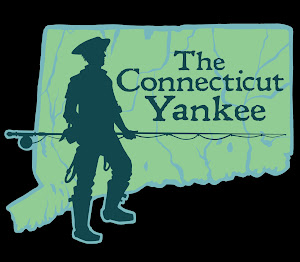









.jpg)

